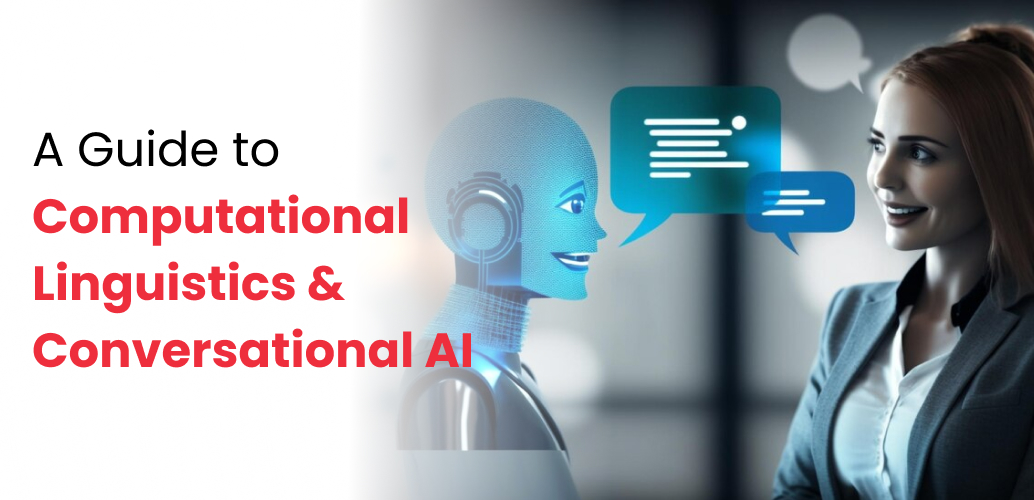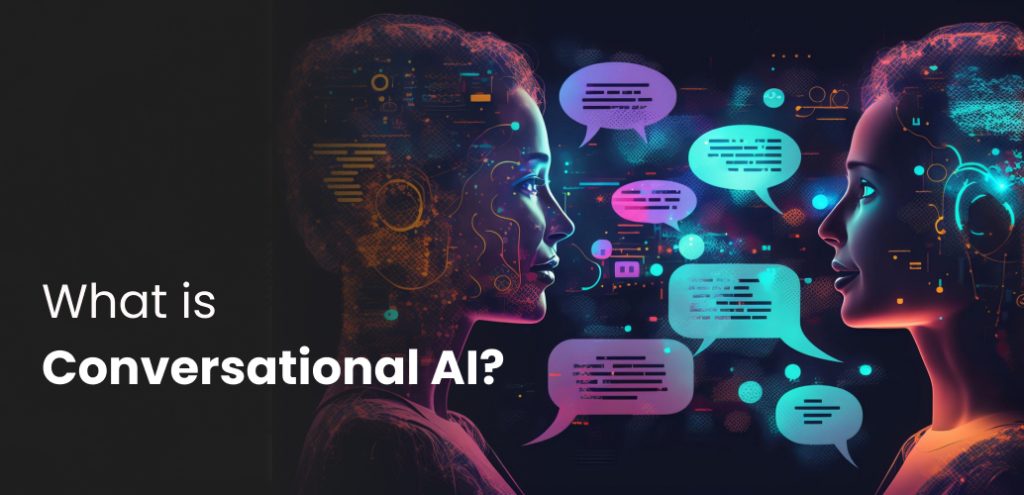Blog > A Guide to Computational Linguistics and Conversational AI
A Guide to Computational Linguistics and Conversational AI
January 24th, 2024

A Guide to Computational Linguistics and Conversational AI
What is Computational Linguistics?
How Does Computational Linguistics Work?
Importance of Computational Linguistics in AI
How Does Conversational AI Work?
How Computational Linguistics and Conversational AI Ease Our Daily Lives?
Start a Career in Computational Linguistics and Conversational AI With upGrad Campus
- What Is the Difference Between Computational Linguistics and Conversational AI?
- What Is the Job Role of a Computational Linguist?
- What Is the Importance of Learning Conversational AI?
- What Qualifications Are Required for the Position of Computational Linguist?
If you’ve ever thought, ‘how does Siri listen and reply?’ or ‘how do chatbots on websites understand queries?’ this blog is for you. This groundbreaking technology has been possible majorly due to computational linguistics and conversational AI.
As humanity stands on the brink of the AI revolution, machines and devices are learning to understand, write, and even speak just like we do. This blog covers all the necessary details you need to know about computational linguistics, conversational AI, and how to make a career in this field.
What is Computational Linguistics?

Computational linguistics is the scientific and engineering field that seeks to combine computer science and linguistics. It forms grammar frameworks to make it possible for machines to understand the properties of human language.
Its key applications include summarising text, analysing spoken language with the sentiment, and even creating a human-like dialogue.
How Does Computational Linguistics Work?
Computational linguistics uses theories and research findings of linguistics and computer science. Its methodologies process a large amount of data in the form of text.
This facilitates the development of algorithms that can understand natural or human languages. It uses tools like text editors, parsers, speech recognition systems, etc.
Importance of Computational Linguistics in AI
It's not surprising that the idea of making machines and devices talk like humans has turned the eyes of businesses towards itself. Once computational linguistics is paired with AI, it produces customer service providers that can work 24/7.
This is exactly why we have seen an influx of chatbots on websites. It is being utilised to improve the overall user experience of AI-driven applications. Simply put, improving the interaction improves the brand value. Needless to say, computational linguistics will be one of the peak careers soon.
Read More : The Role of Linguistics in AI
What Is Conversational AI?

Conversational AI is the development and implementation of artificial intelligence systems that can converse with humans in natural language. It blends machine learning, dialogue management, and NLP to form highly intelligent bots for text and voice channels.
By this process, it enables computers to understand and respond to inputs from humans in human languages.
How Does Conversational AI Work?
Large datasets of natural languages are used to train conversational AI to help them understand the human language. This massive amount of data fuels conversational AI to comprehend the query and respond appropriately.
Read More : Chatbots and Conversational AI: Improving Customer and Business Service
How Computational Linguistics and Conversational AI Ease Our Daily Lives?
Computational linguistics and conversational AI may sound typical, but they are all around us. They find application in various fields and have been simplifying our lives for years. Some of them include:
- Machine Translation: Translating one language to another, like Google Translate.
- Sentiment Analysis: Identifying the emotional tone of text or audio, like Grammarly.
- Speech Recognition: Virtual assistants and speech-to-text, like Siri.
- Named Entity Recognition: Identifying names, organisations, or locations within the text, like customers' names on e-commerce websites.
- Customer Support Chatbots: Personalised customer assistance on apps, or customer service portals, like ChatBuddy on upGrad Campus website.
Start a Career in Computational Linguistics and Conversational AI With upGrad Campus
To make a career in this field, it is necessary to have a degree in linguistics and computer science. Having a strong understanding of natural language processing, conversational AI platforms, and programming languages will also provide an edge in one’s career path.
upGrad Campus provides an Artificial Intelligence and Machine Learning job-ready course with guaranteed certification. With program experts from leading industry giants like Meta and Disney+Hotstar, it prepares students to excel in this field.
FAQs
1. What Is the Difference Between Computational Linguistics and Conversational AI?
Computational linguistics is all about analysing and processing human language with the help of computational methods. It is a broad field comprising many natural language processing areas. While conversational AI develops computer programs to converse with humans using natural languages.
2. What Is the Job Role of a Computational Linguist?
A computational linguist blends linguistic knowledge and technology to make or enhance NLPs. They make the machines understand and generate human language. They may work on projects involving sentiment analysis, speech recognition, or machine translation.
3. What Is the Importance of Learning Conversational AI?
Learning conversational AI opens doors to exciting career opportunities. A person fluent in conversational AI can develop intelligent systems to converse with humans using natural language. This will particularly be in demand by businesses looking to improve their customer services.
4. What Qualifications Are Required for the Position of Computational Linguist?
A computational linguist must have a degree in linguistics, computer science, or a related field. They must be proficient in programming languages, machine learning techniques, and have a deep knowledge of linguistics. Various artificial intelligence courses in India offer certifications that set individuals apart from the rest.
Watch more:
Disclaimer: The success of job placement / interview opportunity depends on various factors including but not limited to the individual's qualifications, experience, and efforts in seeking employment. Our organization makes no guarantees or representations regarding the level or timing of job placement / interview opportunity. Relevant terms and conditions will apply for any guarantee provided by upGrad.






Add a Comment